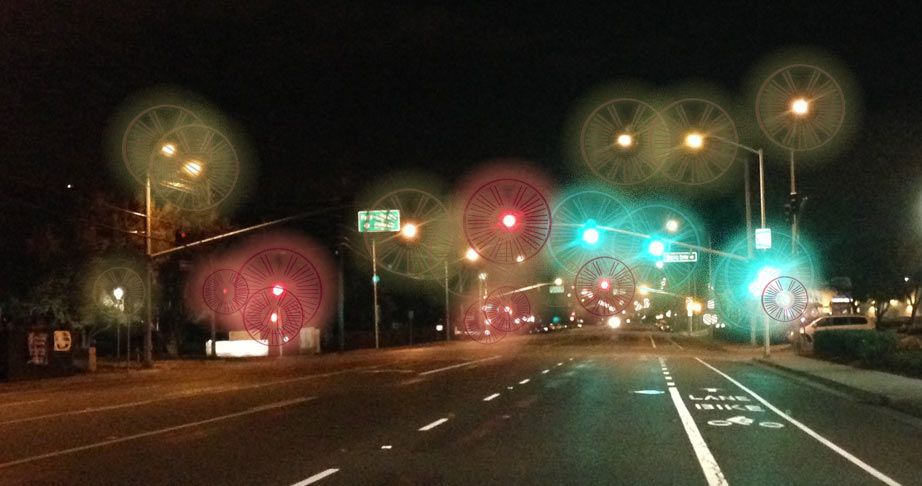SHOP DRY EYE CARE TODAY!
Use code VISIONARYEYE20 at checkout for 20% off!
It’s pretty painful to get a sunburn after missing a spot on your skin with sunscreen. Just imagine how a corneal sunburn would affect your quality of life during some of the best weather of the year. Also known as photokeratitis, this issue occurs during short-term exposure to high intensity UV-B rays. Photokeratitis is painful but temporary and is similar to a sunburn, but on your corneas (the clear portion of your eye in front of your pupil) instead of skin. It can look like a yellow, thickened area in the whites of your eyes. Too much exposure with ultraviolet rays can temporarily damage your conjunctiva, which is the clear layer of tissue covering the inside of your eyelid and whites of your eye.
Summertime activities that can put someone at increased risk for photokeratitis include mountain climbing, hiking, skiing, and swimming. It can also occur if you use sunlamps and tanning beds, or spend time in an environment with consistent UV light exposure.
There are two types of UV light proven to contribute to eye, skin, or health issues. UV-A rays can pass through your eye’s cornea to reach the lens and retina. UV-B rays can’t pass through glass but still can cause eye damage.

The symptoms of photokeratitis are pain and redness in the eyes, swelling, light sensitivity, headaches, temporary loss of vision, twitching eyelids, and seeing halos (like in the photo below). They can last from six to twenty-four hours but typically disappear after forty-eight hours.

Photokeratitis is most often formally diagnosed after an eye exam, and your doctor will place drops containing a special dye known as fluorescein in your eyes to reveal any superficial irregularities on the surface of your cornea. As for treatment, go indoors immediately after experiencing symptoms and avoid bright lights. Once in a darkened area, place a cold washcloth over your eyes and take ibuprofen. If you wear contact lenses, remove them and use artificial tears to reduce discomfort.
The longer you were exposed to UV lights, the more severe the symptoms. Long term exposure to even the tiniest amount of UV radiation can increase the risk of developing a cataract or macular degeneration (an eye disease that leads to vision loss in the center), or cause tissue elevations on the surface. These conditions are known as pinguecula and pterygium, but can be prevented by wearing sunglasses.
If you wear contacts, ask about ones that absorb UV rays when working or playing in a sunny environment. But even with these types of contacts it’s still important to wear protective sunglasses to shield your eyelids and conjunctiva from the suns’ rays.

The good news is that photokeratitis is preventable simply by wearing the proper eye protection when outside, like prescription sunglasses or snow goggles in the winter. Glare from snow, sand, or water can cause burns to your eyes even if it’s overcast. A wide brimmed hat can help filter out the sun’s rays as well.
When purchasing a pair of sunglasses, it’s worth noting that not all sunglasses are polarized. Polarized sunglasses are manufactured in a distinctive way that creates a different pattern in the lens to block out more light than a usual pair of sunglasses. When choosing a pair, look for one that provides one hundred percent UV protection or UV 400 protection. Prescription sunglasses help with overall light sensitivity, headaches caused by glare, and regular eye strain from squinting in bright sunlight.
For more information, check out our other blog post on prescription sunglasses here.
Be sure to visit your eye specialist once a year to stay up on your eye health and catch any issues early. It’s never been a better time to make an appointment with the team at Visionary Eye Center to get the perfect pair of prescription sunglasses for your summer adventures.
Our Reno eye care facility is one of the best in preventing photokeratitis in our patients.
Schedule an Exam with an Eye Doctor in Reno
If you are a driver who also wears glasses, you’ve probably struggled to decide between which pair of glasses to put on in the car. Either way, you’re hindering your vision one way or the other. By not wearing your eyeglasses, you likely won’t be able to see near or far away depending on your eye condition. But not wearing sunglasses could mean being blinded by the harsh UV rays of the sun. The best option is to get yourself a pair of prescription sunglasses, that way you can achieve optimal vision.
When it comes to prescription sunglasses, there are many varying types to choose from. One of our favorites is the polarized sunglass lens that provides added protection to your eyes in harsh sunlight. Learn more about prescription sunglasses and polarized lenses below.
 The Importance of Protecting Your Eyes with Prescription Sunglasses
The Importance of Protecting Your Eyes with Prescription SunglassesMany patients are unaware of just how damaging UV rays can be on their eyes and do very little to protect them from mild or harsh sunlight. Even if there is cloud coverage in the sky, UV rays can still negatively affect your eyes. UV-A rays typically lead to problems with central vision and the macula which is part of the retina. UV-B rays are also damaging, mostly affecting the cornea and lens. Extended exposure to these harmful rays can lead to more serious eye conditions including:
Though many people are hesitant to spend the money on purchasing a second pair of glasses by buying prescription sunglasses, those who have are sure glad they did. Prescription sunglasses provide much-needed sight assistance even in high-light situations. When you’re driving down the street or taking your dog for a walk and the sun is glaring in your eyes, your regular prescription glasses will do very little to help you see. Likewise, wearing sunglasses with no prescription leaves you with very little vision. Prescription sunglasses, however, block out the sun while providing the same sight assistance as your glasses.
Prescription sunglasses can also help with light sensitivity, glare-related headaches, and regular eye strain from squinting in the sun. And if you’re worried about crow's feet, not squinting all the time from either harsh sunlight or blurry vision can help reduce those lines around your eyes.
First, it is important to note that not all sunglasses are polarized. While all sunglasses are designed to limit UV rays from penetrating through the lenses and limit glare, some are much more effective than others.
To understand how polarized sunglasses work, you need to know how light is reflected. Most sunlight that reaches our eyes is dispersed and scattered due to the fact that it often reflects off of uneven surfaces such as trees and roads. However, when sunlight is reflected from a smooth, shiny surface like the hood of a car, Lake Tahoe or a phone screen, the light is reflected in just one direction. The dispersed light is much less bothersome and damaging, while light that is directly reflecting into your eyes is more troublesome.
Polarized sunglasses are manufactured in a unique way that creates a different pattern within the lens that is able to block out more light than typical prescription sunglasses. A special film is laminated in between the lens surfaces in a vertical pattern. This helps block light and eliminate polarized glare entirely.

There are many advantages to wearing prescription sunglasses, especially with polarized lenses. Polarized lenses provide clearer vision in bright light, increases contrast, offer minimal color distortion, and reduces glare, reflection, and eye strain. And, the polarization is built directly into the lens, leaving a seamless finish for flawless vision. For anyone who spends time outdoors, polarized lenses will provide the best UV protection for your eyes.
When it comes to eye protection, eyeglasses and sunglasses are essential. With prescription sunglasses, you never have to worry about choosing which pair of glasses to put on again.
Visionary Eye Center is your home for custom vision solutions, and we take pride in offering top-tier care for each patient. We want our patients and community to be well informed to make the best health decisions for you and your family. Please don’t hesitate to contact us with any general inquiries or concerns, or schedule an appointment for an eye exam!
 775.827.1100info@visionaryeyecenter.com8175 South Virginia Street Suite B-900
775.827.1100info@visionaryeyecenter.com8175 South Virginia Street Suite B-900